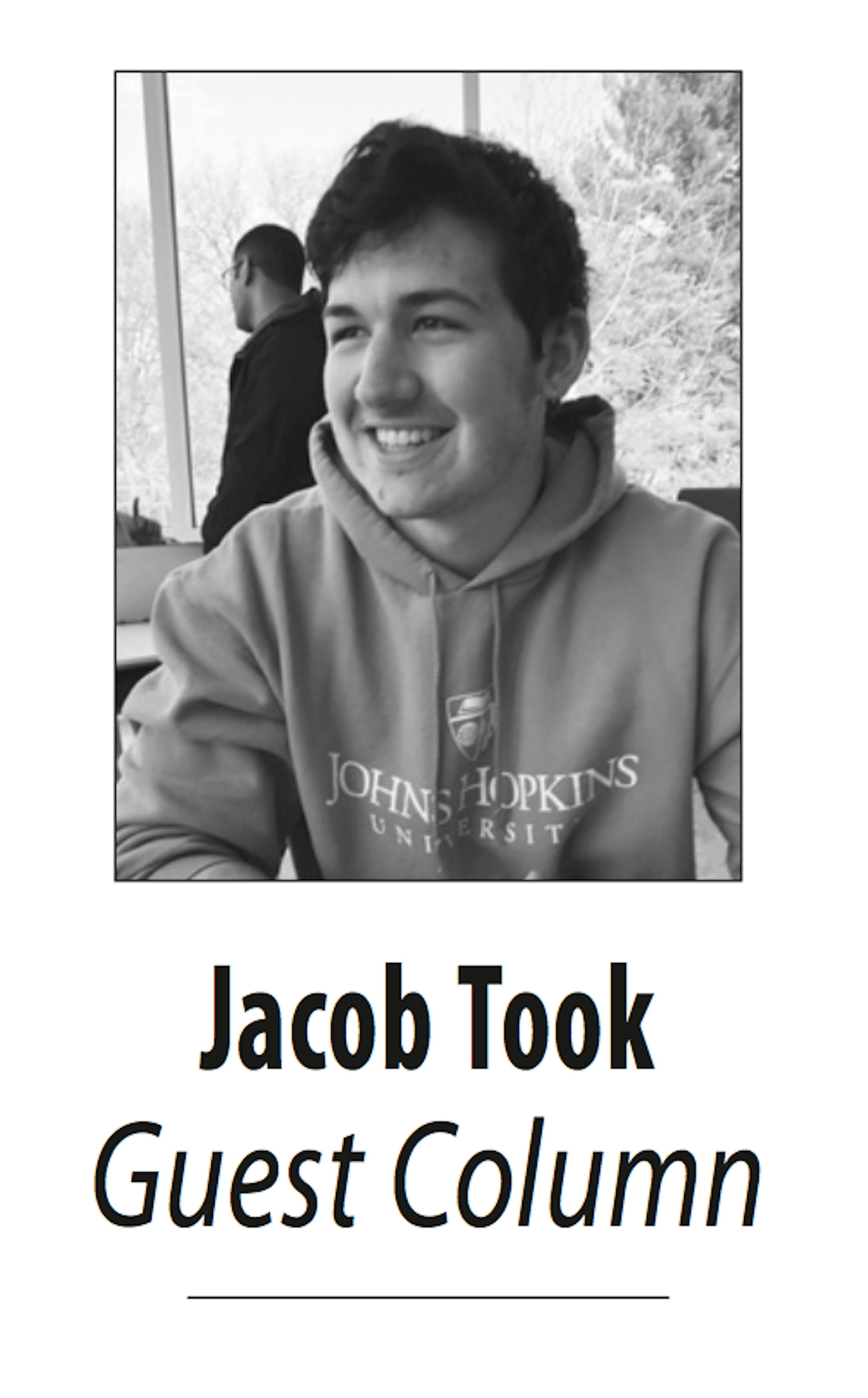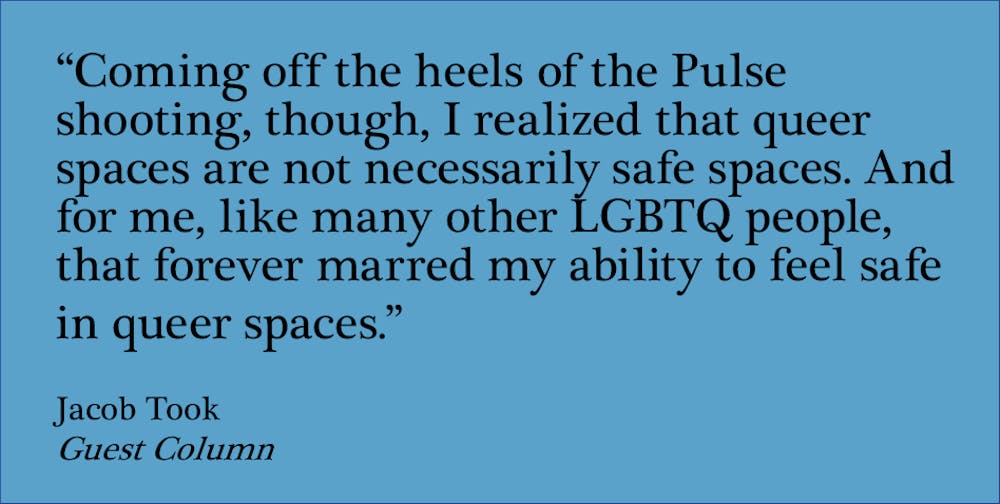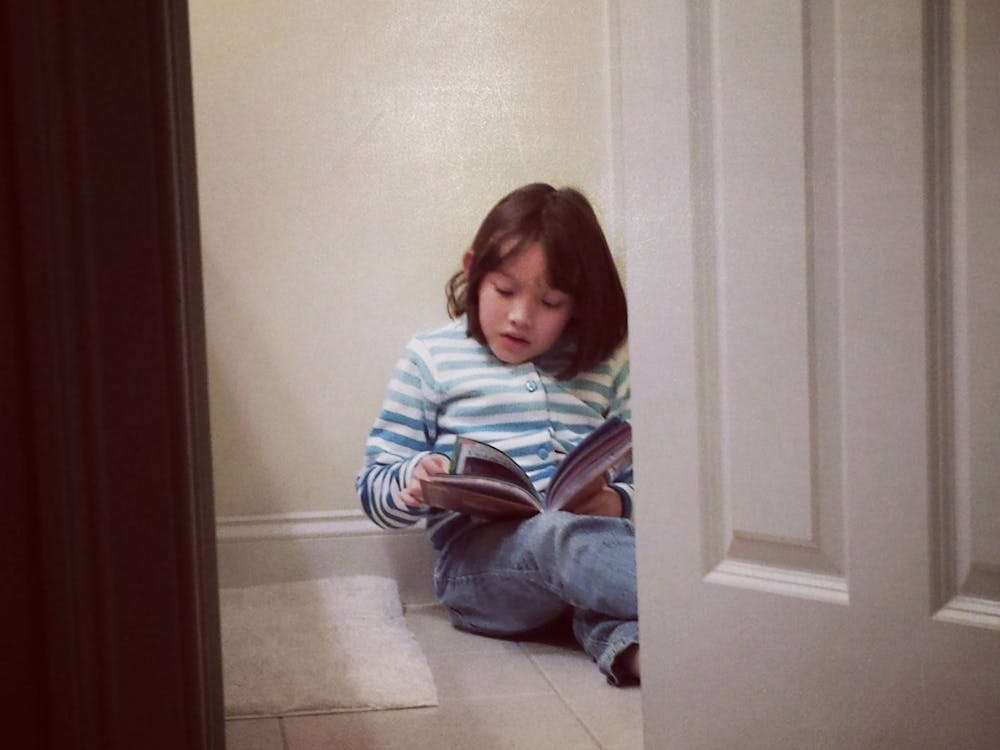
I am not a poet. My ideal afternoon of writing does not include hours spent agonizing over the meter of each word, the rhythm of each line, wondering whether a close rhyme is close enough to work or if I need to scrap it entirely.
Students can’t make their way through the Writing Seminars program without taking both fiction and poetry classes. I understand why it’s important to read both, to try writing both. I can even see ways that the principles of writing poetry influence my fiction. But still, I dread the moment when I sit down with a blank sheet of paper to write a poem.
I struggle to figure out what I should write about. I usually can’t find the words. I certainly have a hard time getting them in order. The rough draft of a sonnet will take an entire day’s work. And always, there’s one thing I turn to, one thing that makes the words flow seamlessly:
The Pulse shooting.
I was fresh out of high school when Omar Mateen entered Pulse, a queer nightclub in Orlando, Fla., with an automatic weapon and killed 49 people before shooting himself.
I wasn’t there. I don’t know anyone who was. I lived in Orlando for a year, but that was long before I knew what nightclubs were or that I was part of the LGBTQ community. I haven’t lived through a similar instance of gun violence.
So why was I so impacted by the Pulse shooting? Beyond offering my thoughts and prayers, beyond mourning for those who lost their lives, beyond calling for an end to gun violence in this country. I didn’t cry when I found out. I didn’t rage or scream. I don’t think I realized at the time the impact it would leave on me.
But looking back, that was the first time I realized the real danger of identifying as LGBTQ.
In high school, I had to deal with conservative dicks who threatened me, intimidated me and harassed me, but they went away as soon as I left school. They had no real power over me, and it was easy for me to brush them off. With the Pulse shooting came the realization that I could be killed at any time in any place just because someone decided they didn’t like that I was gay.
College was the first time in my life when I could go to actual queer spaces for LGBTQ people. That was not something I had in high school. And it was great feeling part of a community that I didn’t know I had been missing.
Coming off the heels of the Pulse shooting, though, I realized that queer spaces are not necessarily safe spaces. And for me, like many other LGBTQ people, that forever marred my ability to feel safe in queer spaces.
So why poetry? Maybe that’s the only way I feel like I can address it. Maybe for a long time I didn’t think too much about the trauma left by the Pulse shooting, but it came out when I tried to write poems.
Maybe I realized this semester that it was a problem because over half of the poems I’ve written for my Introduction to Poetry class have been about the Pulse shooting, examining it from different angles and different perspectives. Sometimes the speaker is the shooter, sometimes a victim or the parent of a victim, sometimes just a passerby who sees the aftermath.
I’m always trying to place myself back in that moment, trying to understand what happened, the rage and the grief and the fear that permeate that scene in my mind.
I also have some guilt — am I really entitled to write poetry about a tragedy I wasn’t a part of? Is putting myself in the shoes of the shooter doing a disservice to my community? Should I think about publishing these poems? Will I become that Pulse poet?
It’s not that my other poems are unusable, but they pale in quality compared to those I have written about Pulse. Of the 10 best poems I’ve written, the only one that isn’t about Pulse confronts the purges of gay men in Chechnya last year. Do I have an obsession with writing about gay tragedies? Maybe.
Part of me hopes that I’ll be able to write my way out of it, that if I just throw enough words at it, eventually I’ll have done all of the thinking I need to and move on. But that hasn’t happened so far, and I don’t know if it’s reasonable to expect that to happen. All I know is that the words are still coming.





